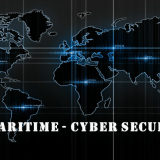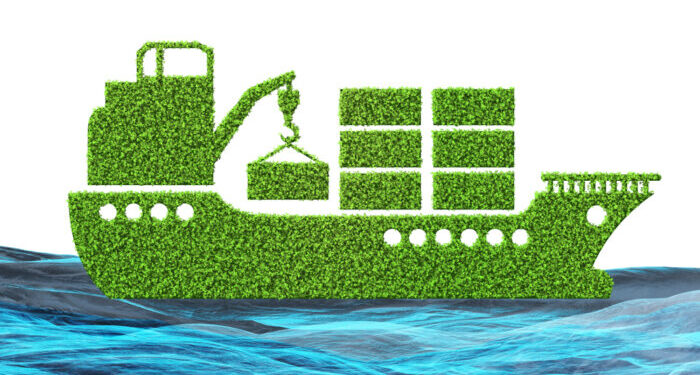China News Service, Wuhan, January 8 (Chen Libo) The Yangtze River Maritime Safety Administration announced on the 7th that in 2021, the number of accidents, the number of dead (missing), the number of sunken ships, and the economic loss will drop by 29.6% and 36% respectively in 2021. %, 45.5%, and 48.6%, and the “four indicators” of accidents decreased year-on-year. Among them, the number of d
China News Service, Wuhan, January 8 (Chen Libo) The Yangtze River Maritime Safety Administration announced on the 7th that in 2021, the number of accidents, the number of dead (missing), the number of sunken ships, and the economic loss will drop by 29.6% and 36% respectively in 2021. %, 45.5%, and 48.6%, and the “four indicators” of accidents decreased year-on-year. Among them, the number of deaths and missing persons was the second lowest in history, and the remaining three indicators were the lowest in history. The water safety situation achieved another good result.
The relevant person in charge of the Yangtze River Maritime Safety Administration introduced on the 7th that the bureau is responsible for the safety supervision and communication guarantee of the waters nearly 2,700 kilometers away from Yibin, Sichuan, Jiangsu, and Liuhekou, the main line of the Yangtze River. There are more than 65,000 ships sailing, and there are more than 220 drinking water sources. The area under the jurisdiction is highly ecologically related, highly related to people’s livelihood, highly related to development, high safety risks, and complex water navigation environment.
The picture shows Changjiang Maritime Law Enforcement implementing “no punishment” or “no punishment for the first violation” for 24 types of minor violations. Photo courtesy of Changjiang Maritime Safety Administration
In order to effectively ensure the water traffic safety of the Yangtze River trunk line, in 2021, the Yangtze River Maritime Safety Administration will put into use the most advanced 60-meter comprehensive emergency command vessel “Maritime 01” in the country, transform and upgrade the Yangtze River trunk water search and rescue coordination center, and organize the establishment of the Yangtze River Shipping Meteorological Service Alliance.
At the same time, emergency rescue and on-duty duty were strengthened. A total of 1,443 safety warnings were issued throughout the year, and 230 navigation bans were implemented; 66 water search and rescue operations were carried out, and 75 ships and 584 personnel were successfully rescued, with a success rate of 97.2% of life rescue.
In order to ensure the safety and smoothness of water traffic on the Yangtze River, the Yangtze River Maritime Safety Administration has opened up a “green channel” for the transportation of key materials for the national economy and people’s livelihood and import and export of foreign trade materials, ensuring the safe transportation of 670 million tons of coal, 110 million tons of oil and natural gas, and 90 million tons of food.
In particular, the pilots of the Yangtze River fought on the front line of ensuring smooth flow, protecting people’s livelihood, and preventing the epidemic. Throughout the year, they led a total of 61,400 Chinese and foreign ships with a cargo volume of 463 million tons in and out, and led 32,000 ships from countries and regions with high epidemic risk. Second, it has made important contributions to ensuring the smooth flow of domestic and international dual circulation.
The picture shows the Yangtze River Pilot Center’s efforts to ensure the smooth transportation of civilian materials and ships. Photo courtesy of the Yangtze River Maritime Safety Administration
At the same time, the three-year special rectification of water traffic safety production was carried out in depth. The Jiangsu section of the Yangtze River trunk line, the Sichuan section and the Three Gorges Reservoir area, Yichang, Jiujiang and Wuhu sections realized the dynamic clearing of “three no” ships; thoroughly implemented the “Yangtze River Protection Law” , adopted the “four no and two straight” methods to inspect pollution-related enterprises, docks, and ships, investigated and dealt with 2,539 pollution-related violations throughout the year, took 226 detention or restricted berthing measures, and cooperated with local governments to dismantle more than 7,000 fishing boats in the Yangtze River. In the section from Yueyang to Yibin, the “onboard storage and onshore delivery” of ship pollutants has been promoted. More than 11,000 ships have implemented zero discharge of water pollutants, and vigorously promoted the construction of the beautiful Yangtze River.
In addition, the bureau also carried out in-depth activities of “I do practical things for the masses”, built and put into use 148 maritime self-service stations and realized 24-hour service; fully implemented “one-stop service” and “full-course online service”, and the average settlement time for government affairs was shortened. 30%; 375 cases of “no penalty” and “no penalty for the first violation” were implemented for minor violations, and a 24-hour smart hotline for maritime government consultation was opened, which comprehensively improved the level of maritime services.
Source: tellerreport



